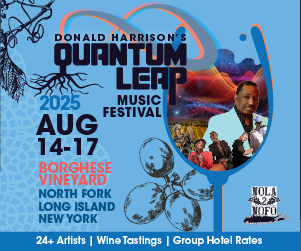 |
British born jazzman Barry Martyn is a grand storyteller, a good drinking companion, and just the person to have around if you’re new to New Orleans and care about traditional jazz. It’s perhaps because of Martyn’s “regular guy” image that those of us who know him tend to forget his remarkable level of achievement.
After some 40 years on the local scene, Martyn is still a good drummer, still a good bandleader, and still taking New Orleans musicians on tours that help keep love of the music alive around the world. There are some who say he’s one of the best PR men New Orleans jazz ever had. But even more important is the role he has played as a record producer and researcher, the result of which is that a vast array of music and information from the famous New Orleans revival of the’40s, ’50s and’60s has not only been preserved, but is easily accessible.
Loaded with interesting anecdotes, this biography certainly has entertainment value, but it’s a bio with a purpose. It is a serious effort on Martyn’s part to detail his relations with not just the big names from the revival era, but to tell what he knows about as many of the lesser known figures as he can fit in. The book’s appendices document the dozens of taped interviews with musicians that Martyn has done through the years that are now in the Historic New Orleans Collection or are part of the National Park Service interview program. And along with this is a catalog that Barry is justly proud of—the 120 CDs and two videos he produced for George Buck’s American Music label.
The footnotes to this book include another important Martyn contribution: brief biographical sketches of 40 or so veteran jazzmen that are mentioned in the text. George Lewis and Hoagy Carmichael are on the list, but so are Alton Purnell, Joe Watkins, “Brother Cornbread” Thomas, and many more like them, names you may have seen on record and CD liner notes, but people who today are virtually forgotten.
Martyn had been asked by a number of his associates to write his story but always said he was too busy. It was on this basis that a fellow Briton and jazz enthusiast Mick Burns did some 40 hours of taped interviews with Martyn to put together this book. Burns is sadly now deceased, but there’s certainly reason to honor his contribution to this work as a memorable legacy.
One more note: this is the first post-Katrina book about New Orleans that I’ve seen that makes no reference at all to the storm. There was no need to. In advance of Hurricane Andrew 15 years ago, Barry Martyn had already seen to it that the most valuable historic material he knew of was safe and secure. And it has been ever since.




